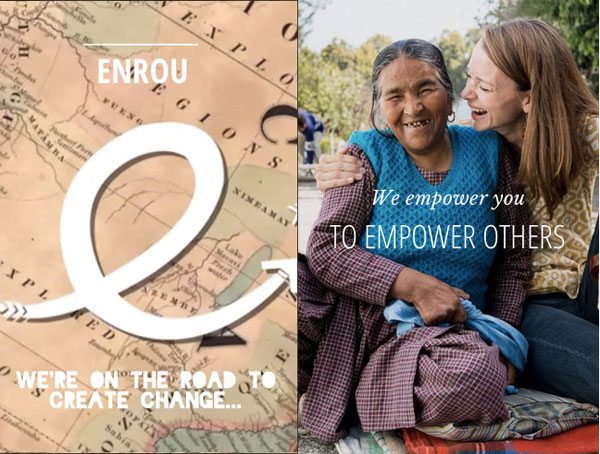By Jeff Gelles
The Philadelphia Inquirer.
And the winner of Forbes’ “$400,000 Pressure Cooker” is . . . Enrou — and winning with it are people in places as far from the Los Angeles start-up’s home as purse and backpack makers in rural Guatemala, cotton weavers in Malawi, and artisans in Laos who turn Vietnam War bomb remnants into jewelry.
Ann Wang, 23, CEO of the young company, and cofounder Jessica Willison won a $150,000 investment Tuesday from Steve Case, best known for the company he cofounded more than two decades ago, the one that became America Online.
Now a venture capitalist, Case was one of the three judges for the Pressure Cooker, envisioned as a live version of TV’s Shark Tank.
It played out before a ballroom filled with more than 1,000 “young entrepreneurs and game-changers” invited to the inaugural Forbes Under 30 Summit, which began Sunday at the Convention Center.
Along with Enrou, the five finalists included two from Philadelphia: MilkCrate, which has developed an app designed to help people live sustainable lives, and TowerView Health, which designed a high-tech pill dispenser to help the chronically ill keep taking their medications.
Calling herself a social entrepreneur, Wang said Enrou — the name comes from “the idea of being en route toward a better world” — seeks to connect artisans in developing countries with a worldwide market.
“We empower consumers to reduce global poverty with every single purchase,” Wang told Case and his fellow judges, Forbes Media’s Mike Perlis and Troy Carter, a Philadelphia native and music executive who is CEO of Atom Factory.
Thanks to Enrou, Wang said, “a weaver in the middle of Namibia who didn’t really have market access at all, let alone global market access, is able to connect with consumers in the U.S. and all over the world.”
To make its message more compelling, Enrou also promotes content — stories, photos and videos portraying the artisans’ lives and work — that it hopes will go viral.
The company partners with more than a dozen brands, such as Hiptipico, “a socially conscious fashion brand that supports local artisans around Lake Atitlan, Guatemala,” and the Malawi Cotton Project, “designed to provide skills training, education, nutrition, sanitation, and promote fairer trade practices.”
Wang said some of its partner brands are involved in microfinance, a concept designed to get small amounts of capital to artisans and others who need help getting off the ground. All are driven by a mission similar to Enrou’s.
“All of our brands focus on building entrepreneurship and providing opportunity within developing communities,” Wang said after winning Case’s investment plus $250,000 in free services and advertising. “It’s much smarter for us to partner with organizations that have been there for years.”
Case’s enthusiasm was evident right away, even if he wanted to know more about the business model.
“I love, love, love the idea and your passion, but I worry, worry, worry about competition,” he said.
Enrou was hardly alone in suggesting it could do well financially by doing good for the world — a theme that echoed through the presentations.
“We are a for-profit company with nonprofit values,” said Morgan Berman, founder and CEO of MilkCrate, which Berman said already offers almost 2,000 listings in Philadelphia — “everything from food, fashion, energy, transportation, education and so much more.”
Consumers “are increasingly spending money at companies that match their values,” Berman said. “In fact, charitable giving is stagnating while socially responsible spending is climbing.”














































































































































































































































































































































































